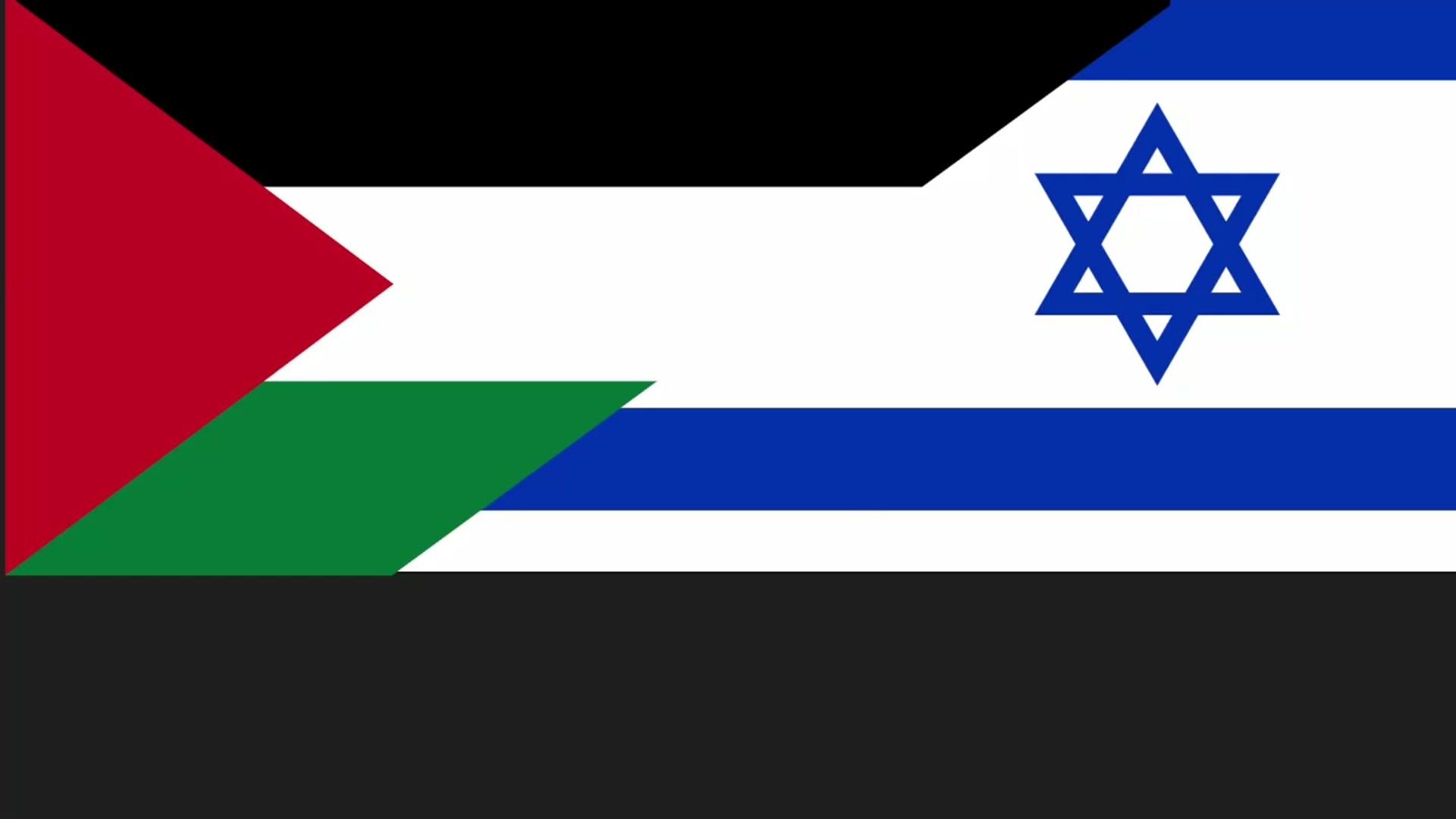Trump in Middle East: Symbols but little substance
- Published
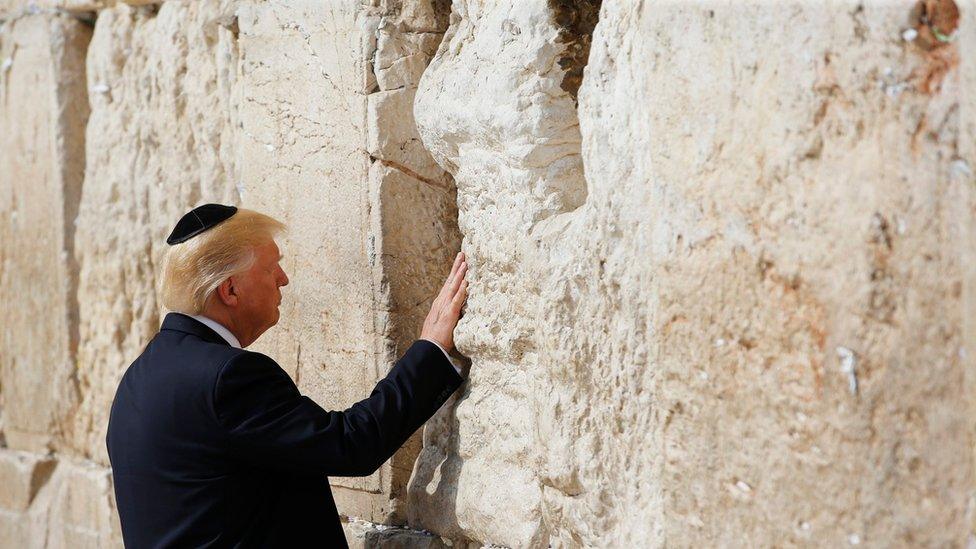
Israelis viewed Mr Trump's visit to the Western Wall as a sign of support
President Donald Trump brought with him to Jerusalem most of his top advisers, dozens of vehicles and his own helicopters.
The White House booked the entire King David Hotel for the president and his entourage. The Israeli and Palestinian authorities cleared the main roads of Jerusalem and Bethlehem for the movements of his armed and mighty motorcade.
In recent times every American president also brings with him new hopes and fears for Israelis and Palestinians.
I sat in a huge auditorium at Cairo University in 2009, listening to President Barack Obama trying to re-set relations with Arabs and Muslims. In the process he alienated Israelis and its leaders never forgave him. His first act as president was to appoint a Middle East envoy whose peace mission, in the end, failed.
President George W Bush sponsored a peace conference in Annapolis in 2007, which for a while was hailed, in vain, as a major step towards the establishment of an independent Palestinian state alongside Israel.
President Bill Clinton presided over the moment in 1993 at the White House when Yasser Arafat and Yitzhak Rabin exchanged a historic handshake and signed the Oslo peace agreement. At the end of his presidency in 2000, a make or break summit failed and was followed by years of violence and unrest.
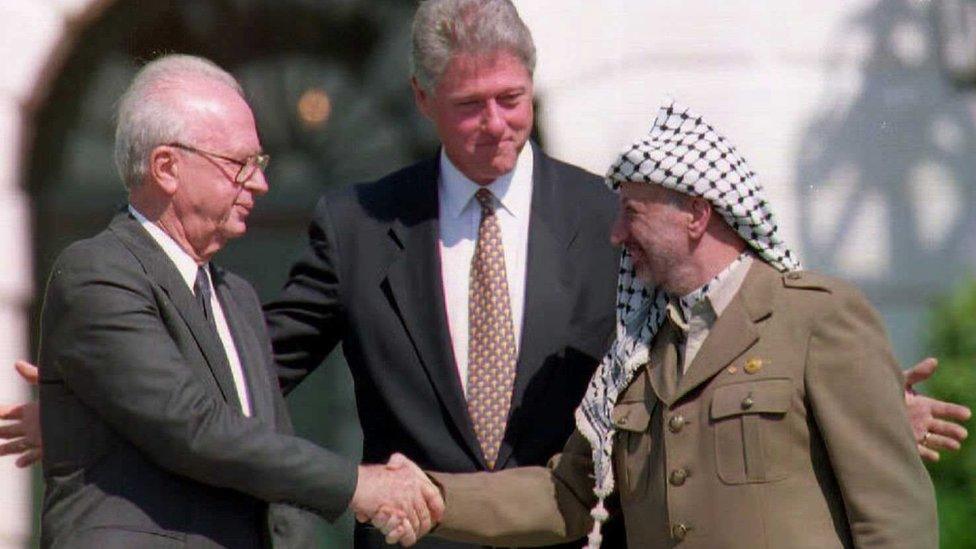
Decades after the handshake of 1993, Israelis and Palestinians have yet to sign a final deal
Now President Trump, who sees himself as the world's best dealmaker, says he would like to pull off the world's toughest deal.
After the first leg of his trip in Saudi Arabia, President Trump seems to hope that Sunni Arab countries might be part of any solution between Israel and the Palestinians.
Without doubt the Saudis and the Israelis are talking, because Iran is their shared enemy. But the Saudis have had their own Arab peace plan on the table for the last 15 years, offering full peace and recognition of Israel in return for the establishment of a Palestinian state on the entire territory of the West Bank and Gaza with its capital in East Jerusalem.
That is something the current Israeli government is not prepared to concede.
In all the speeches President Trump made during the trip there was no detail about how he might succeed when so many others have failed. So signs and symbols and implicit messages are being pored over for meaning.
Mr Trump became the first serving American president to visit the Western Wall in Jerusalem, the holiest place where Jews can pray. That is being taken as support for Israel.
The wall is in East Jerusalem, which Israel annexed after it was captured 50 years ago and which most of the world outside Israel regards as occupied land.
Some will interpret the fact that the president declined the Israeli prime minister's request to accompany him as a sign of support for the status quo view that it is occupied territory.
In his final speech, at the Israel Museum in Jerusalem, President Trump also identified himself, his administration and the United States four-square with Israel.
He repeated, to lots of applause, that he would never let Iran have nuclear weapons. Israel has a substantial and officially undeclared nuclear arsenal.
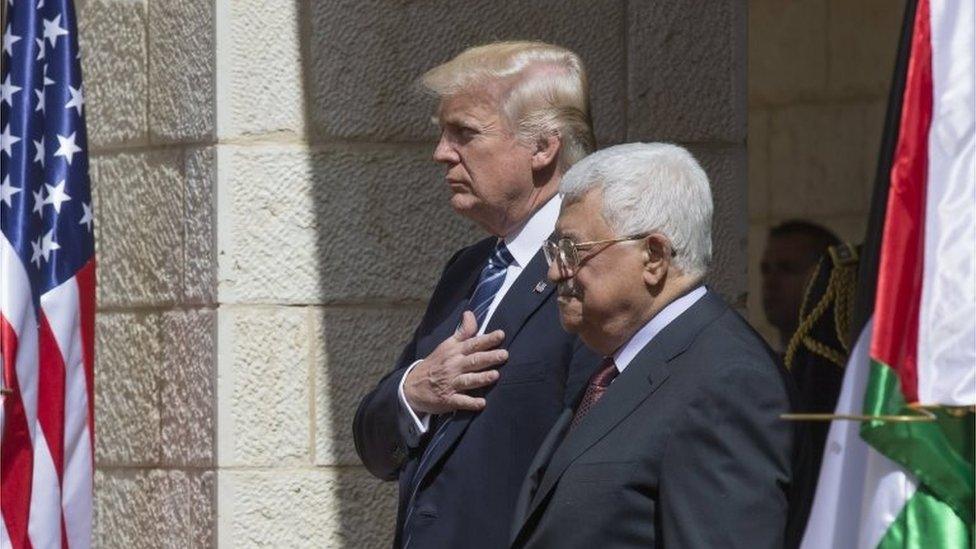
Mr Trump said he was reassured of Mr Abbas' peaceful intentions
One pointer to a potential difference with Israel's Prime Minister, Benjamin Netanyahu came at the museum. In his opening remarks, Mr Netanyahu said that if the bomber in Manchester was Palestinian, and his victims were Israelis, the Palestinian Authority would be paying a stipend to his family.
He was referring to a Palestinian Martyrs' fund. It pays pensions to people it regards as victims of the occupation, including the families of individuals who have been killed attacking Israelis. There is also a fund to support Palestinians who have been imprisoned by Israel. The Palestinians have compared the payments to the salaries Israel pays to soldiers.
President Trump, in his speech, did not pick up the cue.
After making many warm remarks about Israel, which earned him standing ovations, he said he believed that the Palestinian President, Mahmoud Abbas, was serious about making peace.
Senior Israeli politicians and officials in the room disagree. Prime Minister Netanyahu said earlier this year that President Abbas lied to Donald Trump when they met in the White House.
That is an important disagreement. If President Trump's hopes ever become negotiations about substance he will find that there are many others. The two sides are far apart on the main issues, like the future of east Jerusalem, the borders of a Palestinian state and the fate of Palestinian refugees.
Mr Trump is right on one point. This is a conflict that badly needs settling. If that is not possible, there needs to be political progress. History shows that bloodshed tends to fill the void left by the absence of hope.
- Published23 May 2017
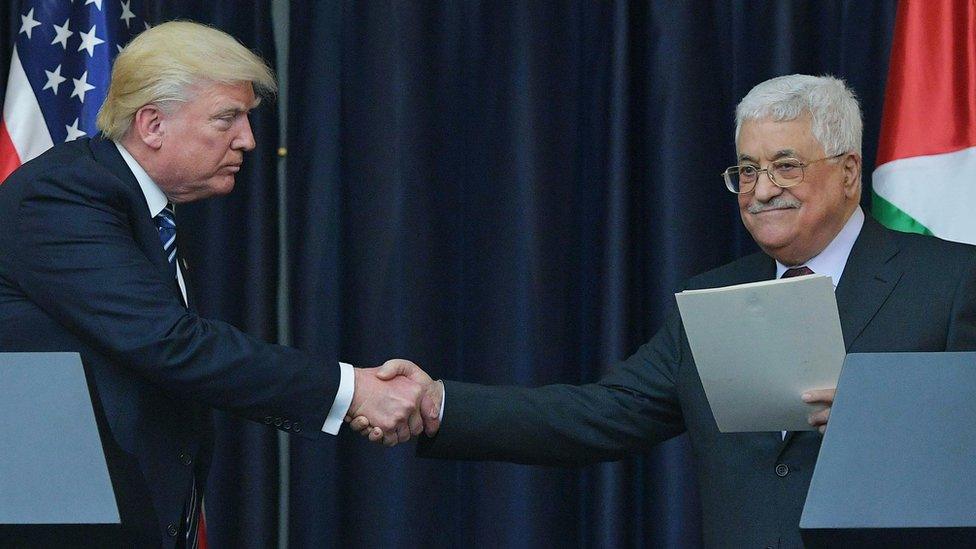
- Published14 January 2017
